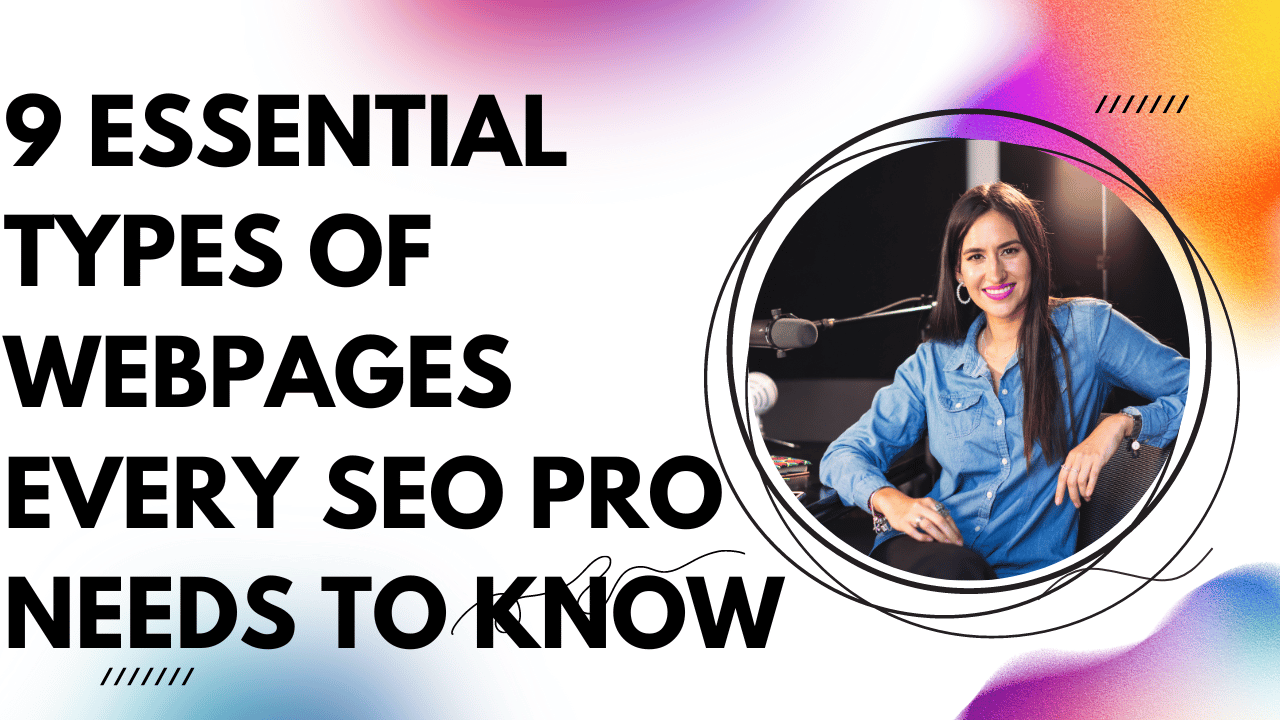SEO
9 Essential Types of Webpages Every SEO Pro Needs to Know
| Outline of the Article |
|---|
| 1. Introduction |
| 2. Homepage |
| 3. About Us Page |
| 4. Services/Product Pages |
| 5. Blog/Content Pages |
| 6. Contact Us Page |
| 7. FAQ Page |
| 8. Testimonials/Reviews Page |
| 9. Privacy Policy and Terms of Service |
| 10. Conclusion |
| 11. FAQs |
9 Essential Types of Webpages Every SEO Pro Needs to Know
Introduction
Creating a well-structured website is essential for effective search engine optimization (SEO). In this article, we will explore nine essential types of webpages that every SEO professional should be familiar with. By understanding the purpose and best practices for each page, you can optimize your website to drive organic traffic and improve user experience.
Homepage
The homepage is the main entry point to your website and often the first impression visitors have of your brand. It should provide a clear overview of your business, showcase your unique value proposition, and direct users to relevant sections of your website.
About Us Page
The About Us page offers an opportunity to share your brand story, company values, and team information. It helps build trust, establish credibility, and create a personal connection with your audience. Include relevant background information, mission statements, and highlight achievements or unique selling points.
Services/Product Pages
These pages focus on showcasing the specific services or products your business offers. Each page should provide detailed information, highlight key features and benefits, and incorporate relevant keywords for SEO optimization. Include clear calls-to-action (CTAs) to encourage conversions.
Blog/Content Pages
Blogs and content pages are essential for providing valuable information to your audience while targeting specific keywords. Create high-quality, informative, and engaging content that addresses your target audience’s pain points and interests. Incorporate relevant keywords naturally and encourage social sharing and engagement.
Contact Us Page
The Contact Us page is crucial for providing visitors with a way to get in touch with your business. Include essential contact information such as phone number, email address, and physical address. Consider adding a contact form for convenient communication and provide prompt responses to inquiries.
FAQ Page
An FAQ page addresses common questions and concerns that your audience may have. Compile a list of frequently asked questions and provide detailed answers. This page helps improve user experience, reduces support requests, and can enhance search visibility by targeting long-tail keywords.
Testimonials/Reviews Page
Testimonials and reviews serve as social proof, building trust and credibility for your business. Showcase positive feedback and testimonials from satisfied customers. Include their names, titles, and, if possible, their photos to add authenticity and credibility.
Privacy Policy and Terms of Service
These pages are crucial for legal compliance and establishing transparency. The Privacy Policy explains how you handle user data, while the Terms of Service outline the rules and guidelines for using your website. Ensure these pages are easily accessible and clearly written.
Conclusion
By understanding and optimizing these essential types of webpages, you can create a well-rounded website that attracts organic traffic, engages visitors, and converts leads into customers. Implement SEO best practices, provide valuable content, and prioritize user experience to maximize the impact of your webpages.
FAQs
Q1: Are these webpages applicable to all types of websites?
A1: While these webpages are essential for most websites, the specific implementation may vary depending on the type and purpose of your website. Adapt these page types to suit your specific industry, business, and target audience.
Q2: How can I optimize these webpages for SEO?
A2: Optimize these webpages by incorporating relevant keywords, writing unique and engaging content, optimizing meta tags and headings, improving page loading speed, and ensuring mobile responsiveness.
Q3: Should I include images and multimedia on these webpages?
A3: Yes, including relevant images, videos, or other multimedia can enhance the visual appeal and engagement of these webpages. However, ensure they are optimized for web performance and support your overall SEO strategy.
Q4: How often should I update these webpages?
A4: It is recommended to regularly review and update these webpages to reflect any changes in your business, services, or products. Additionally, updating content and adding fresh information can improve SEO rankings and user engagement.
Q5: Can I combine some of these webpages into one?
A5: While it is possible to combine certain webpages, it’s generally beneficial to keep them separate to maintain clarity and provide focused information to users. Evaluate the specific needs and goals of your website when considering combining pages.

